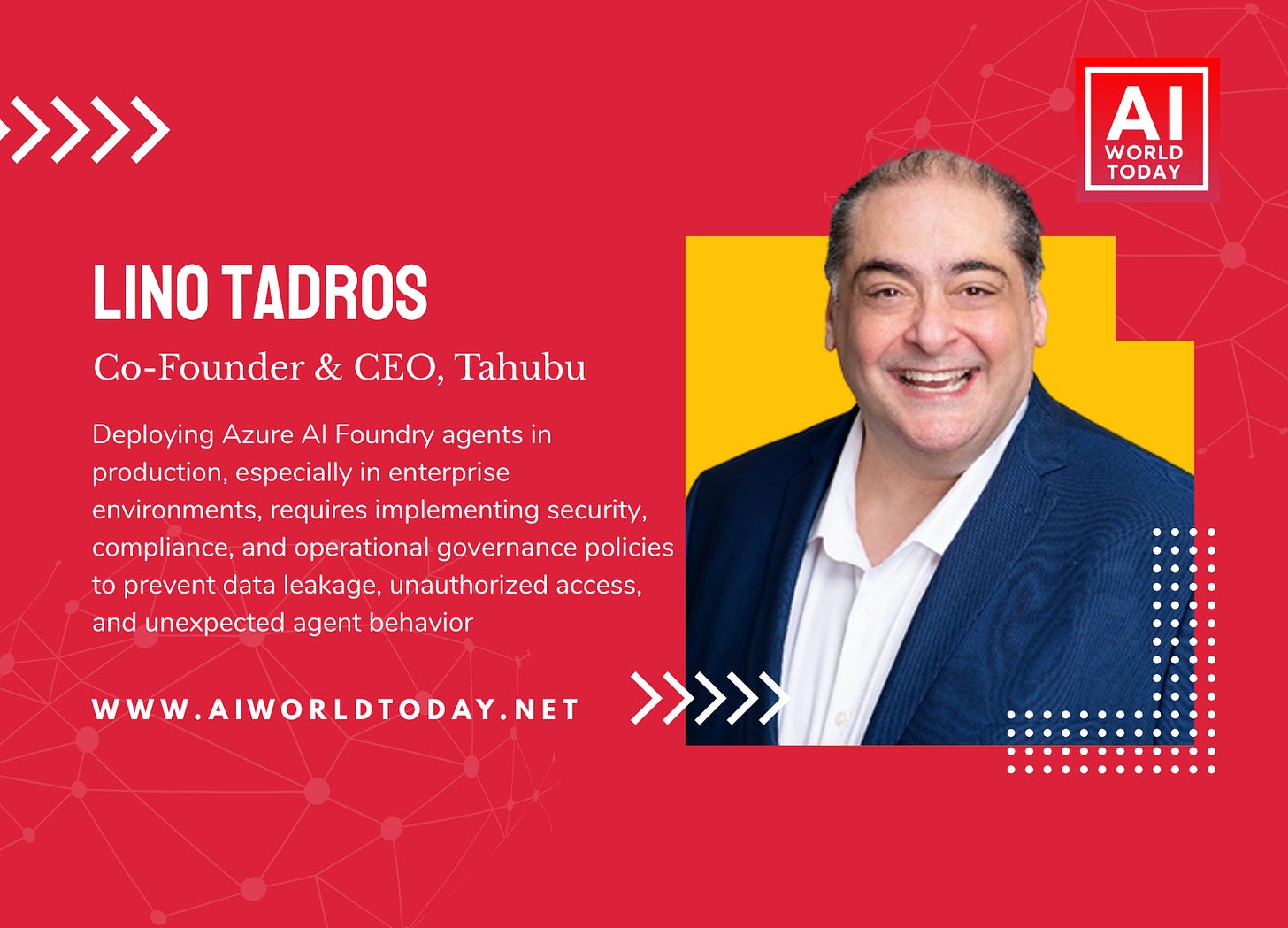Mastering AI Agents: Lino Tadros Unveils Azure AI Foundry's Potential at Live! 360 Tech Con
AI is reshaping the enterprise—and developers need to keep pace. At Live! 360 Tech Con, you’ll go beyond buzzwords to master tools like Azure AI Foundry, learning how to design, deploy, and manage production-ready AI agents alongside industry experts. The following Q&A with Lino Tadros, CEO of Tahubu & Live! 360 speaker, dives into how Azure AI Foundry empowers that transformation:
The excitement around generative AI has pushed large language models (LLMs) to the forefront of enterprise software development--but getting those models into production is where the real complexity begins. Developers need more than just smart output; they need tools that can integrate with enterprise data, scale securely, and behave predictably across complex workflows.
That’s where Azure AI Foundry comes in. Microsoft’s new platform enables developers to build, orchestrate, and deploy intelligent agents powered by LLMs, but grounded in enterprise-grade practices. With support for external data sources, tool integrations, and full observability through Application Insights, Azure AI Foundry provides a structured, repeatable approach to deploying generative AI in the real world.
At Live! 360 Orlando this fall, Lino Tadros, Co-Founder and CEO of Tahubu, will lead a full-day hands-on workshop titled “Mastering Azure AI Foundry with Agents.” The session walks developers through every stage of agent development--from creating Foundry Hubs and Projects in the Azure Portal, to vectorizing data with Azure AI Search, deploying to managed compute, and consuming results in live applications using Python or JavaScript.
Participants will also get hands-on experience with tools like Visual Studio Code, Semantic Kernel, and Azure AI Search, and learn how to troubleshoot, secure, and optimize their agents for real-world performance.
We caught up with Tadros ahead of the session to learn more about what sets Azure AI Foundry agents apart from traditional AI models, how the lab is structured, and what developers should know before deploying these agents in production.
Inside the Session
What: Hands-on Workshop: Mastering Azure AI Foundry with Agents
When: Nov. 17, 2025, 8:30 a.m. - 5:30 p.m.
Who: Lino Tadros, Co-Founder & CEO, Tahubu
Why: Understand and master Microsoft Azure AI Foundry and agent development.
Find out more about Live!360 taking place Nov. 16-21, 2025
What capabilities do Azure AI Foundry agents offer beyond traditional AI models?
Tadros:
Stateful and Context-Aware Intelligence
Multi-Tool Orchestration
Integration with Enterprise Data & Security
Multi-Agent Collaboration
Hybrid Reasoning: Combining LLMs with Deterministic Logic
Customization and Fine-Tuning
Built-In Monitoring and Observability
How will participants build, deploy, and test agents in the lab environment?
They will need access to an Azure Subscription
They will follow the lab to create an Azure AI Foundry Hub and Project
They will create multiple Foundry Agents
They will clone a GitHub Repo to test multiple Foundry agents using Semantic Kernel.
They will debug, monitor, and observe the interactions between the agents and the LLM in use.
What security or operational policies must be in place before deploying agents?
Deploying Azure AI Foundry agents in production, especially in enterprise environments, requires implementing security, compliance, and operational governance policies to prevent data leakage, unauthorized access, and unexpected agent behavior.
How can these agents connect to external data sources or business workflows?
Azure AI Foundry agents are designed to be deeply integrated into enterprise systems, enabling them to connect to external data sources and orchestrate business workflows. Unlike standalone AI models, these agents are tool-enabled, meaning they can call APIs, query databases, trigger automations, and interact with external services under controlled policies.
Azure-Native Data Sources (Azure SQL, Azure AI Search, Azure Cosmos DB, Azure Data Lake/OneLake, Microsoft Graph, etc.)
External APIs & SaaS Integrations (CRMs, ERPs, Payment Gateways, Knowledge bases)
What are common troubleshooting pitfalls developers face in production?
When deploying Azure AI Foundry agents in production, developers often encounter challenges stemming from the complexity of integrating LLM-powered agents with enterprise data, APIs, and workflows. These pitfalls usually fall into five main categories:
Performance: latency, rate limits, inefficient prompt chains
Integration: misconfigured tools, bad data freshness, circular workflows
Governance: prompt injection, data leakage, unauthorized access
Security: missing logs, no hallucination detection, silent failure
Observability: uncontrolled model changes, cost overruns, insufficient testing
What performance tuning methods are available to optimize agent behavior?
Optimizing Azure AI Foundry agents requires tuning across model configuration, tool orchestration, retrieval strategies, and workflow design. Because these agents combine LLMs, tools, data sources, and business logic, performance tuning isn’t just about speeding up responses -- it also means improving accuracy, reliability, cost efficiency, and user experience.
Ready to take your AI expertise to the next level? Join us at Live! 360 Tech Con 2025 for hands-on sessions that turn innovation into implementation.
Use promo code AIWORLD at checkout to save $500 off standard registration—and get ready to build the next generation of intelligent enterprise solutions.



